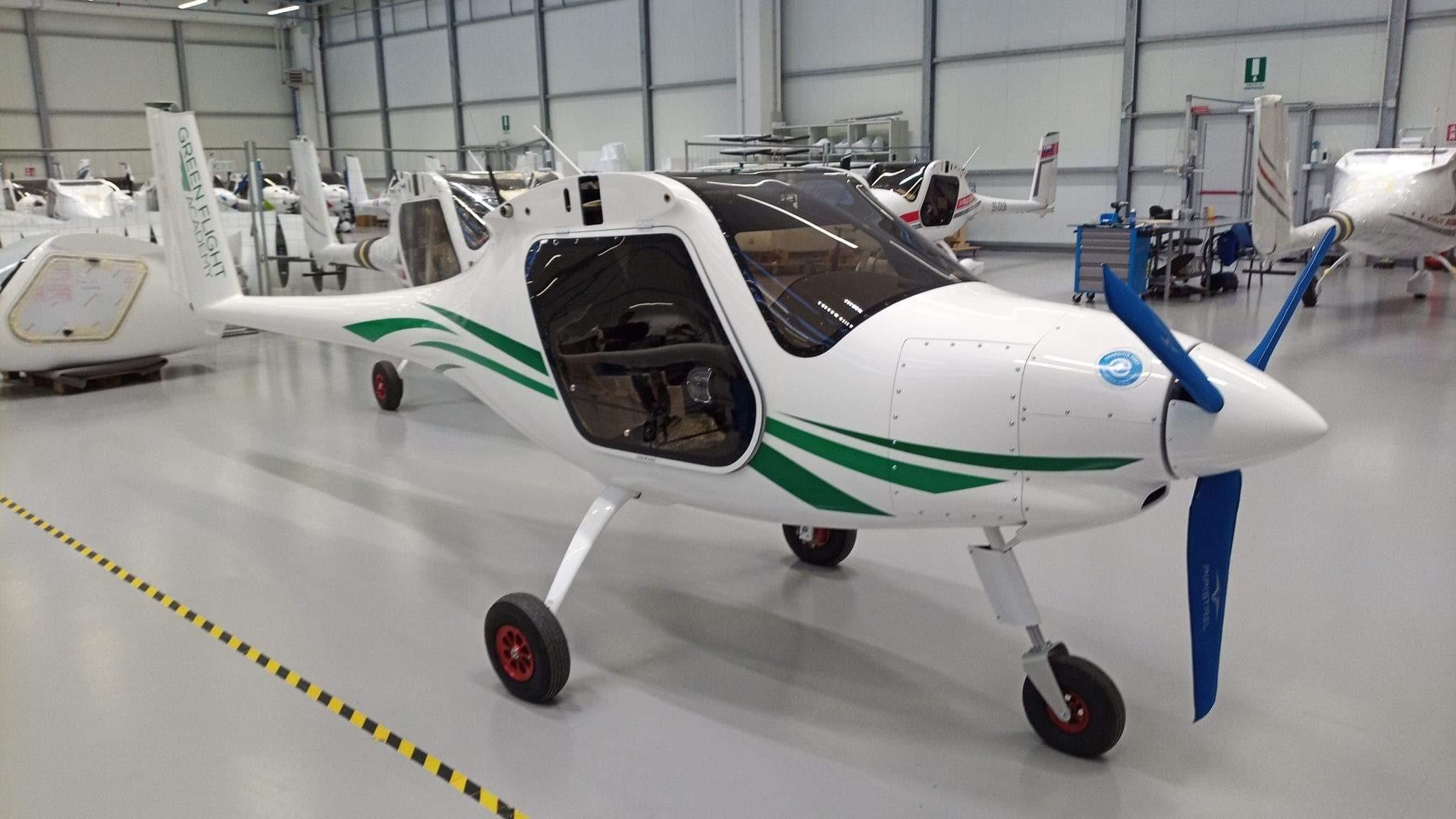
DUBAI—A startup flight training academy in Sweden aims to become an international center of excellence for sustainable electric aviation, pilot training and vehicle development based on access to 100% renewable energy and access to open airspace.
Based in northern Sweden close to the Arctic Circle, the Green Flight Academy has been established with the support of the local municipality of Skelleftea. The area is home to large scale hydro-electric powerplants and wind farms and is also where energy company Northvolt is building Europe’s largest battery Gigafactory.
“We plan to start operations in January with electrified aircraft from Pipistrel,” said Bjorn Winberg, co-founder of the academy and director of business development, at Dubai Airshow. “We decided to base it here because of the hydro-power and the airport is very progressive with new technology, including a power line with 1 megawatt and battery recharging facilities already in place.”
The Pipistrel Alpha Electro two-seater and diesel-powered Piper Archer DX will form the initial backbone of the training fleet. “We have 10 electric aircraft on order, with two just delivered and another coming in a month from now,” said Bertil Lagerquist, co-founder and business development director. “The remaining aircraft will be delivered next year. We have a couple of the Archer DX, but we are closely monitoring the release of electric aircraft that can do instrument training.”
Even though the Archer DX’s can be flown on sustainable bio-diesel fuel, Lagerquist added “our aim is eventually to be fully electric.” The company is particularly targeting crew training for the emerging electric regional aircraft market. “We will have to fill in gaps where the certification basis is not there just yet—that’s on the instrument and twin-engined flight training yet.”
The company’s road map includes supporting training for the first commercial electric aircraft with seats up to 10 seats through 2025, as well as providing test facilities for these and other electrical aircraft. The plan also envisages supporting an extended electrical air traffic network to destinations in Sweden and Finland from 2026 to around 2030, as well as support of the growing regional interest in electric vertical take-off and landing aircraft.
“We are in discussions with aircraft manufacturers about their training needs for whenever the electrical passenger aircraft become available. Years before they can implement the 10-20 seater aircraft they have to make simulators and training syllabus available and we want to be in the middle of that,” added Lagerquist.
From a broader goal perspective Peter Karlsten, business development manager for Skelleftea municipality, said “we are determined to become the leading hub when it comes to commercialization of electric aviation, and we have all the conditions for it. We have 100% renewable energy, charging stations at the airport and we have airspace available 24/7 and the know-how to make that investment. We have some of the world’s largest rivers which create more power than the Hoover dam.”
